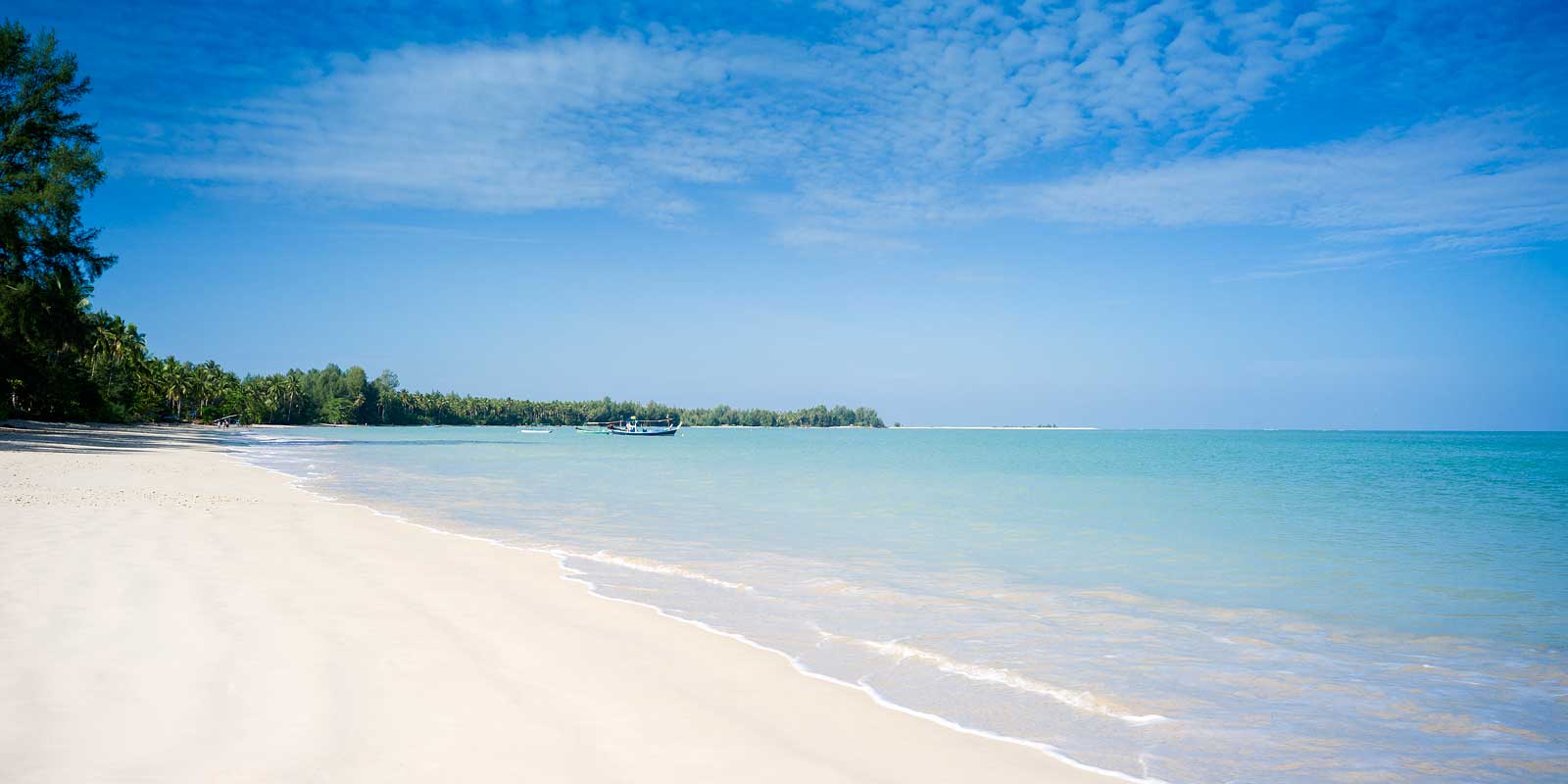
- Article published at:
- Article tag: ideas
Drawer menu
In a groundbreaking effort to help safeguard Khao Lak's stunning natural beaches, lessen the impact of rising sea levels and combat coastal erosion, Thailand's luxurious boutique resort, The Sarojin, is researching the viability of a new and innovative sustainability project. Using locally sourced oyster shells and by-products from the local fishing industry, research test sites were created in late November to assess the viability of a possible new natural offshore reef. If successful, it's hoped the scheme will improve the area's environmental resilience and enhance its marine ecosystem.

Photo credits: The Sarojin
Khao Lak's beaches experience typical seasonal monsoon erosion due to their exposure to the Andaman Sea and, like many coastal regions, Khao Lak is at risk of shoreline retreat. Sea level rises also pose another threat, making coastal protection a key priority for the area. Current measures in place, such as sand-filled bags and concrete walls, reduce the beaches' aesthetic, impact local businesses and affect natural habitats.
The Sarojin's research project is a natural solution to coastal erosion that utilises indigenous oyster shells sourced from local fishermen. Net boxes filled with the cleaned shells have been deployed at various test sites along the coast, with locations identified through an extensive review of the shoreline. Sustainable engineering and consultancy firm Witteveen+Bos provided initial research advice. Over time, it's hoped that free-swimming oyster larvae will attach themselves to the boxed shells, gradually forming a thriving oyster basket reef that can then be more permanently installed offshore. In addition to serving as a natural barrier against erosion, the oysters are highly effective water filters and their presence is expected to significantly improve inshore water quality, further enhancing marine ecosystems.

Photo credits: The Sarojin
Spearheading the initiative is The Sarojin owner Andrew Kemp, who added:
"We're truly passionate about sustainability and responsible tourism at The Sarojin and protecting the area's stunning coastline is something that is so vitally important to our local community and wildlife and has always been high on our agenda. We are already heavily involved in local mangrove planting projects along the coast and launched our One Booking One Tree initiative in 2022, which sees one tree planted for every guest at the resort, but we felt we could do more.
A similar oyster reef concept has already been researched and trialled in Singapore with promising results. If our trials in Thailand are also successful, we hope the resulting reef project will have a lasting positive impact on the environment. Our test sites should give us a clear indication of the efficiency and viability of the project within the coming nine to twelve months.”
Monitored test sites include nets fastened to the seafloor by The Sarojin's jetty as well as within the estuary that rivens the property. The sites will be monitored regularly through 2025 to assess the basket reef's growth and development. If successful there are plans for the project to be extended with additional sites added next year.
For more information about The Sarojin, please visit: www.sarojin.com